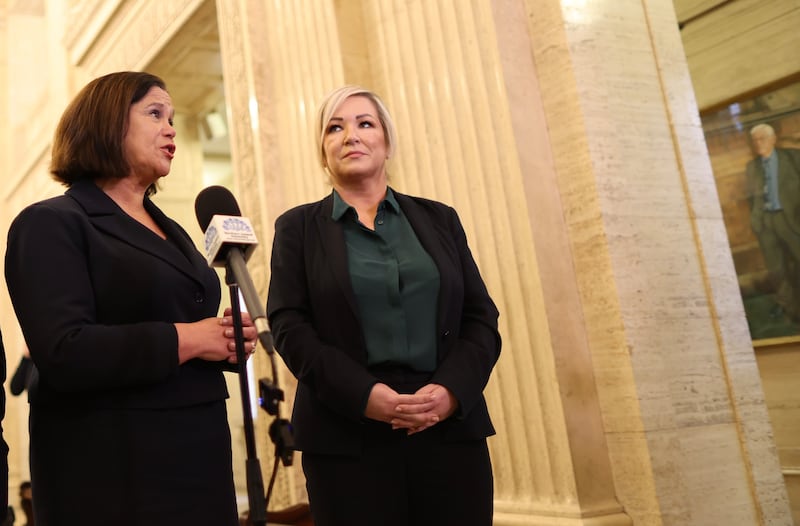After a tortuous period of will-they, wont-they politicking and internal debate within the DUP, Sir Jeffrey Donaldson has finally managed to persuade his party to back a deal with the British government to restore power-sharing.
But although things are set to move at a rapid pace, there remains one more stop along the way before the parties return to Stormont and ministers can take their seats in a new Executive.
First and foremost, following the publishing of the details of the deal itself, the British government must pass legislation surrounding the measures relating to the trade of goods agreed in the deal before anything else can get underway.
These measures are the foundation of the deal itself for the DUP, and could be brought before Westminster on Thursday.
Mr Donaldson has said it will “provide new legal and practical protections for the Acts of Union which guarantees unfettered access for Northern Ireland businesses to the rest of the United Kingdom”.
Northern Ireland Secretary Chris Heaton-Harris has promised the “binding commitments” made between the government and the DUP will be met, and “all conditions are in place” for the process to move smoothly into the next stage of Stormont’s long-awaited revival.
- Sinn Féin leader says Michelle O’Neill’s appointment as first minister is ‘moment of very great significance’Opens in new window
- The Irish News view: As Donaldson’s DUP goes from dither to decision, unionism’s self-indulgent disputes about the Irish Sea border need to be put firmly in the pastOpens in new window
- Brian Feeney: Forget smoke and mirrors of DUP deal – the real change for unionists will be a Sinn Féin First Minister in Michelle O’NeillOpens in new window
That happens in force when the Assembly is recalled and a Speaker elected. If the legislation is passed at Westminster on Thursday, this is likely to take place in the immediate days afterwards.

Once a Speaker is chosen, Sinn Féin, being the largest party in the Assembly, will nominate Michelle O’Neill as the north’s first-ever nationalist first minister, which will be followed by the DUP nominating a deputy first minister - another significant but stinging first for a party used to holding the first minister’s post since 2007.
It has been speculated that Lagan Valley MLA Emma Little Pengelly is in line to take the deputy role.
Then the nominating of ministers for Stormont’s other eight departments will take place under the D’Hondt system, except for the Justice portfolio, which requires a cross-community vote.
The SDLP - which once was entitled to the deputy first minister’s post following the establishment of the Executive following the Good Friday Agreement before its vote share shrank under the rise of Sinn Féin - will form an official opposition.
The party announced the move following a poor result at last year’s Assembly election that left it without the right to nominate a minister in a revived Executive.
Once the formalities are finalised, the hard work begins for the new ministers, who face the monumental task of repairing the north’s crumbling institutions following two long years of stagnation.









